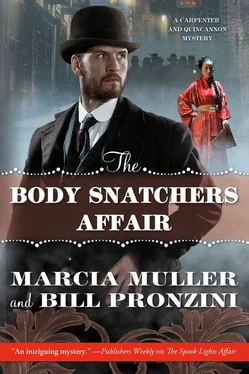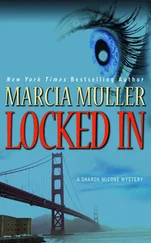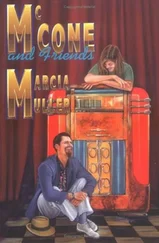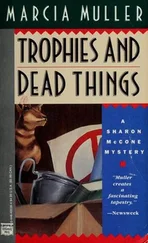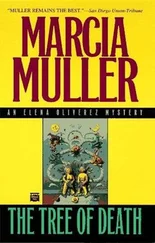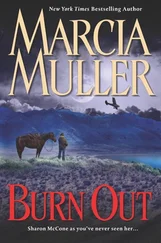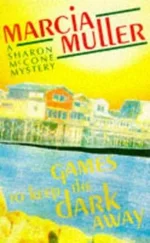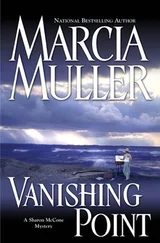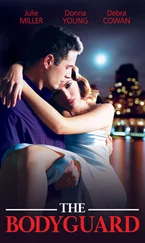“Trilby also has financial troubles, partly the result of mismanagement of his mortuary and partly horse-race gambling losses. Birds of a feather. You met him at one of the county fair races — you were seen together at the Alameda and other tracks on several occasions, thick as the thieves you are. You had no trouble talking him into becoming your accomplice in the scheme to dupe your mother, I’m sure.”
A sound halfway between a moan and a goat’s bleat escaped Bertram’s throat. He took a half-step toward Sabina. For an instant she thought he might attempt to attack her. Even though she knew him to be a weakling and likely a coward, she had been prepared for any rash act on his part; throughout the confrontation she’d kept her hand inside her bag, her fingers clutching the handle of the Remington derringer. But Bertram’s half-step was merely reflexive. There was no fight in the man; she would have no trouble with him.
There was no bluster left in him, either. “I had to do it,” he said, abandoning all pretense of innocence. “I had to. Threats of bodily harm if I didn’t pay my markers... I had to do something!”
“The ransom money. Do you still have it?”
“Yes, in my office downtown. I intended to pay Trilby and the bookmakers tonight, but now—”
“Now you’ll make an excuse to your mother and together we’ll go fetch it. I’ll see that it’s returned to her.”
“And tell her that I— No, you can’t do that! She’ll be devastated, she’ll disown me!”
“You should have thought of that,” Sabina said, “before you decided to become a ghoul.”
The day had turned overcast, the temperature several degrees colder, when Quincannon turned afoot into Fowler Alley. A sharp wind gusted along its nearly empty expanse, swirling refuse and grit from the pitted roadway. All of Chinatown had a desolate aspect today, like a place where most of the inhabitants have fled to avoid a plague. Very few Chinese were abroad; there seemed to be almost as many uniformed policemen walking the streets singly and in pairs, keeping the peace.
Quincannon made his way slowly along the first block, hands buried in the pockets of his Chesterfield, his shoulders hunched and his roving gaze studying the buildings with their grimy windows and indecipherable calligraphy. All seemed too small and closely packed to be the one he sought. He entered the second block. Halfway along he spied the one he should have noticed on his previous visit, one that was larger than the rest with an alleyway along one side that appeared wide enough to accommodate a carriage.
He crossed the cobbled street, stepped into the deserted alley. As he moved deeper into its gloomy expanse, he saw that it was a cul-de-sac that widened at its end, where an intersecting passage ran along the rear of the building. He hurried to the corner, poked his head around. Ah, yes! Parked in the shadows some twenty yards distant was a high-sided black wagon, unhitched and unattended, waiting.
Quincannon made his way to the rig along heavily rutted ground. One quick look up close was enough to confirm its purpose and that this was the place he’d come looking for.
The wagon was the Chinese version of a hearse, the building an undertaking parlor.
Just beyond the rig’s backside, a closed door was set into the wall — the parlor’s rear entrance. A tight little smile split Quincannon’s beard when he found the door neither barred nor latched. He eased it open with his left hand, sliding the Navy Colt from its holster with his right. The pale glow from a pair of hanging lanterns showed him a storage area and a corridor that led from it toward the front, both empty. From somewhere in that direction the singsong voices of two or three Chinese came to him, but back here there was only silence.
His eyes had grown accustomed to the gloom; he had no difficulty making his way across the room, the warped floorboards creaking from his weight but not loudly enough for the sounds to carry. He stepped into the corridor, tiptoeing. Halfway along, the sickish odor of formaldehyde dilated his nostrils, forcing him to breathe through his mouth.
The chamber into which he emerged, likewise lantern lit and empty, contained several coffins, most of them unadorned pine boxes designed for the lowborn, a few of the lacquered teakwood variety favored by the highborn and wealthy. A tapestry-covered doorway opened to the right. He moved ahead to the doorway, brushed the fabric aside.
Here was the embalming room, the source of the formaldehyde odor. He traversed the room past a metal table, an herb cabinet, a second cabinet in which needles, razors, and other tools of the mortician’s trade gleamed behind glass. The doorway at the far side was covered by a regular wooden door instead of a tapestry; when he opened it and stepped through, he found himself in a small enclosure so ice-chilled that his expelled breath showed vaporously. The little room contained nothing more than three slender storage vaults.
Sabina had been right, by Godfrey. He was sure of it even before he began opening the vaults.
The first was empty. The second was occupied by the husk of a very old Mandarin whose skin was so wrinkled he might have been mummified. The third was the right one.
The embalmed body here was also that of an old man, but one who had lived a much more pampered life. It was dressed in an intricately embroidered robe of gold silk; the cheeks had been powdered, the long queue neatly braided, and the thin drooping mustache trimmed. A parchment-paged prayerbook was still clutched between gnarled hands.
“Bing Ah Kee,” Quincannon said under his breath, “or I’ll eat my hat and Mock Quan’s for dessert.”
He slid the vault closed, retraced his steps to the doorway, swept the door open. And came face-to-face with a youngish Chinese wearing a stained leather apron over his blouse and pantaloons.
The youth let out a startled bleat, followed by an exclamation or epithet that threatened to escalate into a full-fledged cry of alarm. As he turned to flee, his voice just starting to rise, Quincannon fetched him a sharp rap with the barrel of the Navy at the spot where pigtail met scalp. Flight and cry both ended immediately.
Quincannon hopped over the fallen man, abandoning stealth in his run across the coffin room into the rear corridor, then across the storage area to the rear door. Behind him he could hear raised voices and the sounds of pursuit. He flung the door open, ducked into the alleyway. Squeezed past the hearse and raced to the side passage.
He was two steps into that narrow way when the bullet came within inches of puncturing a vital portion of his anatomy.
The crack of the pistol and its muzzle flash gave him a glimpse of the shooter’s location — close to the funeral parlor wall, just inside the passage from Fowler Alley — as he hurled himself sideways and down to the foul-smelling earth. He fetched up as a second bullet pierced the air above him, snap-fired an answering shot with his Navy. He’d had no time to aim, but his slug must have likewise come close to hitting its target — close enough to put an abrupt end to the ambush. The black-clad figure wheeled backward from the wall, disappeared around the corner into Fowler Alley.
Quincannon scrambled to his feet and launched into a stumbling pursuit. He emerged in time to see his quarry running diagonally across the narrow street some twenty rods distant, passing so close in front of an oncoming wagon that the horse reared in fright. The animal’s flashing hooves narrowly missed him as it buck-jumped forward. The assassin staggered, nearly fell before he regained his balance. In that moment Quincannon, on the run and closing the gap, had a clear look at the man’s face.
Читать дальше
